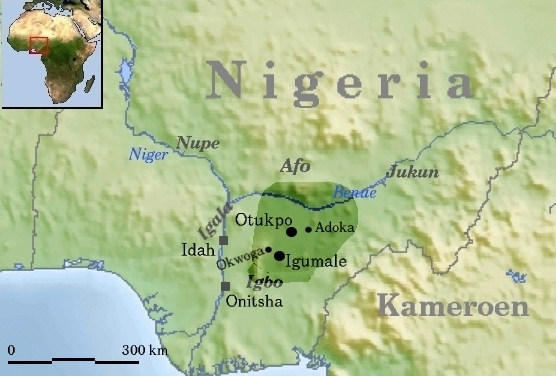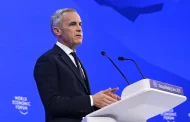It is unhappy times again across Nigeria. As we read this, we have no idea what might be happening to Prof Onje-Gywado, a former Deputy-Governor of Nassarawa State in central Nigeria after having been forcefully taken from his home early Friday morning. In Zamfara State, no less than 87 persons, including women were also abducted a day ago. Benue State, also in central Nigeria which has been the epicenter of killings is back in the news. The killings in the Idoma part of the state and the meeting over it today at the palace of the paramount ruler is actually the subject matter of this analysis.
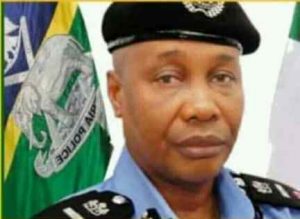
What’s the IGP’s theory of the violent invasions?
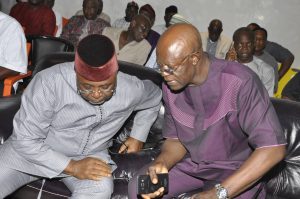
Chief Steven Lawani (L) and Engineer Benson Abounu (R), former and incumbent deputy-governors of Benue State from Idoma land
For a kingdom which believes that congregation is power, the outcome of today’s congregation of the entire Idoma elite – traditional, political, business, intelligentsia and what have you – must be keenly awaited. The minority with the most sustained federal presence is under stress. In Umogidi community somewhere near Otukpo, 53 persons have officially been confirmed killed during an attack on it by people suspected to be herdsmen. Umogidi is just one of the spaces of attack.
The vocabulary of herdsmen is the first problem the meeting will encounter. What sorts of herdsmen will be capable of the arming and shooting skills involved in the kind of operation in question? Yet, that is what the public sphere in Nigeria loves to play with, thereby obscuring the whole thing instead of talking of renegade/rented fighters.
It is renegade/rented fighters that will raise the question of who is renting/paying for the services of the fighters who are capable of carrying out the kind of scorched earth operations that took place in Agatu early 2016 and repeatedly ever since then in many different places wherever herdsmen have had problems with host communities. So, when the Idoma elite meet today, the first thing they ought to interrogate is the language of herdsmen. The language we use can help or hinder our efforts.
The meeting will surely spend a lot of times talking about security. It will not be surprising if it doesn’t talk about power relations and power. But there is no such thing as security which we can master as a domain outside of the power relations within which security is defined. Security is what the security provider says it is. Security is a matter of who defines the threat. So, one approach to securing the community is identifying and engaging with the layers of political authority which defines security or threats in Nigeria.
The engagement can take many forms but, in all cases, engagement can produce better understanding and better approaches to action. So, it won’t be surprising if a powerful delegation heads somewhere in Abuja or Sokoto from Idomaland resonant of the Ooni of Ife’s dash to Abuja a year or so ago when he said that the forests in Yorubaland were filled with many strange faces. It is not clear what has been the outcome of that dash but it is an example of engaging with the political authority instead of self-help options with costly implications. Sokoto may be a good destination of the engagement because it brings the visibility resource in managing adversity. The Sultan of Sokoto may not have political authority but he has cultural symbolism. If it is believed that the attackers are herdsmen, an occupation dominated by Fulanis, then a formal dialogue session with the leader of the Fulanis may not be totally out of place as a preliminary effort.
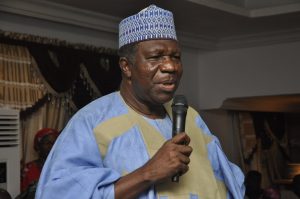
Senator Ameh Ebute, a former Senate president
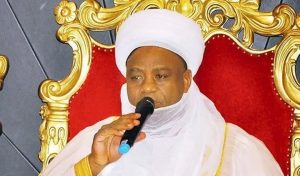
What has the Idoma community ever asked the Sultan of Sokoto and what has the Sultan ever told the Idoma community about the spate of killings by killers regularly called Fulani herdsmen?
The spate of invasion is happening at the worst of time for Idomaland. It is stupid to say that a community of high achievers as the Idoma is powerless but that is also true. Unlike before when it had, most recently, a David Mark in the formal authority ladder with its symbolic import, it almost has nobody of that stature now, with a lone Senator and the Deputy-Governor of Benue State. The dynamics have worked against them this time. This is a big issue for a minority that has always enjoyed muscular federal presence because it is a well-accepted identity across Nigeria. Right from the First Republic through all the years of military rule right till a few years ago, this has been the case.
If it is necessary to name names, such a list would, in most cases, start with J C Obande. He was said to be so respected that he never waited to see the Sardauna of Sokoto. He was a Minister from the Idoma ethnic group in the First Republic and (not sure) one of the just two ministers at the site of the burial of the late premier. Abutu Obekpa was too. For the Idoma to have two ministers in the razor-sharp politics of the First Republic says something about an identity whose elements are accepted. The Chief of Air Staff (whatever it was called in those days) under General Gowon – Ebije Ikwue – came from Idomaland and might be at today’s meeting. In the Second Republic, Senator Ameh Ebute was Chairman of the Senate Finance and Appropriation Committee. In many democracies, the president must call the Chairman of the Finance and Appropriation Committee to a dinner to get his ways with the budget. Ebute was to become the Senate president a decade later, in 1993. The Chief Press Secretary to the President was not conceptualized as a strategic office then. Otherwise, it was occupied by an Idoma man. It was also in that Second Republic that a 30-something year old cerebral Audu Ogbe became a Minister. He was to return to power as National Chairman of the People’s Democratic Party (PDP) in 2001 under the Obasanjo second coming to power and Minister for Agriculture under the Buhari first term, 2015-2019.
The Idoma moment must be the IBB – Abacha times in power, with about half a dozen military governors and/or administrators and a cabinet minister (David Mark). One or two members of the intellectual squad which elevated the IBB regime were of Idoma identity.
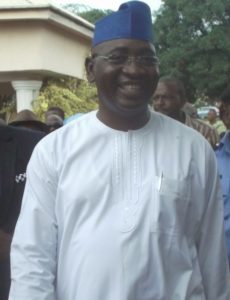
Dr Sam Ode, Deputy-Gov-elect of Benue State
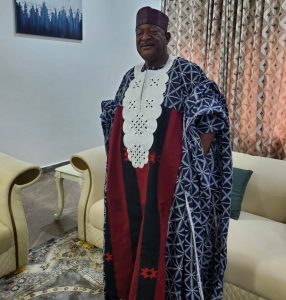
AVM Monday Morgan, leader of an Idoma elite caucus
These are the ones that readily come to mind. There are many more. And then suddenly, there are no such father figures at the moment, figures with the political visibility and voice. It isn’t that there are no such personalities. It is more that there are many for whom visibility and voice is either not part of their consciousness and they do not see it as very necessary or not within their range of skills. But in a highly contested space such as Nigeria, how does any group as the Idoma survive if many of its well-located elite are not practiced in the imperative of voice and visibility in the power game, doing so in a systematic rather than chaotic manner. How many are they in population as to be able to afford losing 53 persons to just a single murderous operation without Nigeria being made to stay awake over it? You cannot make Nigeria stay awake just by getting newspapers to publish pictures of dead people. It is an articulatory process, not in the rhetorical sense but in terms of fusing and pushing a ‘common will’. This is the tragedy of Idoma republicanism.
Whatever is the case, those who say that today’s would be the mother of all meetings must have a point. For, Idomaland is also suffering internal bleeding. Idomaland must face down internal and external threats, develop the capacity for self-interrogation on leadership recruitment, pay more attention to a more critical assessment of its power resources and make better efforts to bring more resource persons to the inner caucus, if there is one. It needs to take engagement with its Others more seriously and learn to give people assignment instead of sitting in judgment based on good versus bad guy prism. Give people assignments and let them refuse rather than speculate. Address the disenchantment with the paparazzi approach to politics going on in Idomaland.
It is likely that someone will remind today’s meeting what Joe Onyela, the lyricist, was used to saying. There are many birds bigger in size and everything than the bird called ‘uloko’ but it is ‘uloko’s feather that is used to signify the king. It would be best if Idoma can see itself as the ‘uloko’ ethnic group within the Nigerian assemblage of ethnics. It has paid its dues through merit mostly and needs to build on the pedigree.

